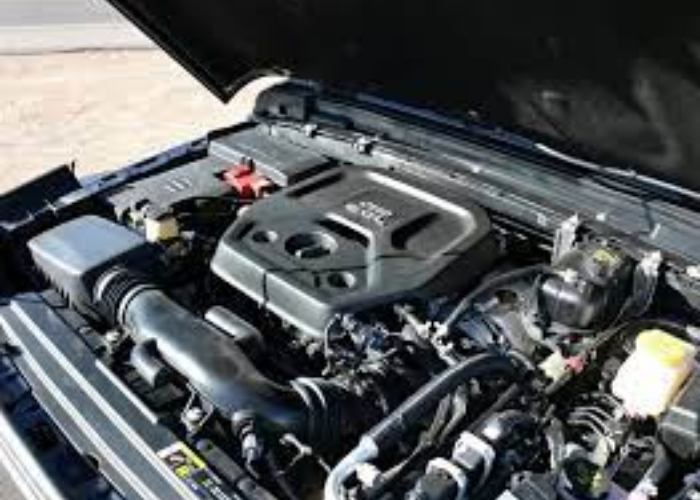Jeep 2.0 Turbo Problems are a common issue among Jeep owners. While the 2.0 Turbo is a powerful engine, it is also prone to certain issues that can be difficult to diagnose and repair. Common problems include turbocharger failure, oil leaks, and excessive exhaust smoke. Additionally, the engine may not start or run smoothly due to a faulty fuel injector or spark plug.
Overview of Jeep 2.0 Turbo
Jeep 2.0 Turbo is one of the most reliable and powerful engines in the Jeep lineup. However, due to its complex design, this engine can experience a variety of problems. Common issues include turbocharger failure, oil leaks, and misfiring. In some cases, these issues could be the result of a faulty turbocharger or a lack of proper maintenance. In addition, the engine may experience low oil pressure, reduced performance, and potential engine damage due to over-boosting. Fortunately, most of these issues are preventable and can be fixed with regular maintenance and inspections. It is important to be aware of potential issues and take steps to ensure the longevity of your Jeep 2.0 Turbo.
Common Problems with Jeep 2.0 Turbo
When it comes to Jeep 2.0 turbo problems, the most common issue is that of turbo failure. This can be caused by a number of factors, such as lack of proper maintenance, dirty engine oil, or worn out parts. Turbo failure is a serious issue as it can lead to decreased engine performance, increased fuel consumption, and even engine failure. Additionally, the turbocharger itself can be expensive to repair or replace. Other common problems with the Jeep 2.0 turbo include a lack of power, excessive smoke, and a decrease in fuel economy. These issues can often be addressed with regular maintenance, such as oil changes and spark plug replacements. It is important to note that some of these issues may require the help of a professional mechanic.
Diagnostic Techniques for Identifying Issues
When it comes to diagnosing Jeep 2.0 Turbo problems, the most important thing is to accurately identify any issues that may be present. In order to do this, a qualified mechanic must use diagnostic techniques that are designed to uncover and diagnose the underlying cause of the issue. This may include visual inspections, testing of engine components, using computer-based diagnostic tools, and more. With the right diagnostic techniques, a qualified mechanic can accurately identify the root cause of the problem and make the necessary repairs. Additionally, these techniques can also be used to identify any other potential issues that may be present on the vehicle. By using diagnostic techniques, a qualified mechanic can ensure that any Jeep 2.0 Turbo problems are properly identified and repaired in a timely manner.
Cost of Repair and Maintenance
The cost of repair and maintenance for Jeep 2.0 Turbo vehicles can vary greatly, depending on the age and condition of the vehicle. For newer models, the cost can range from routine oil changes and tune-ups to more complex repairs or part replacements. The most common repairs include spark plugs, fuel injectors, and timing belt repairs. Wiring and electrical repairs can also be costly, as can any necessary work on the turbocharger itself.
The cost of these repairs can be further increased if the vehicle is still under warranty, as some parts and labor may not be covered by the warranty. In addition, when dealing with an older model Jeep 2.0 Turbo, the cost of repair and maintenance can be even higher due to the age of the vehicle and the potential for more expensive repairs. Taking these factors into consideration can help make informed decisions about the cost and repair of a Jeep 2.0 Turbo.
Preventative Steps to Avoid Issues
When it comes to owning a Jeep 2.0 Turbo, it’s essential to take preventative steps to avoid any issues that could arise. The most important thing to do when it comes to maintaining your Jeep is to keep on top of regularly scheduled maintenance. This includes oil changes, tire rotations, and other inspection services that should be done at least once a year. Additionally, it’s important to be aware of the common problems that can occur with the Jeep 2.0 Turbo so you can address any issues quickly. Some of the most frequent issues include low oil pressure, an engine misfire, and excessive exhaust smoke.
By knowing what to look out for, you can be proactive in helping to prevent any issues with your Jeep. Additionally, it’s important to pay attention to any warning lights that may come on, as this could be an indication of a more serious issue. If you do notice any warning lights, it’s important to take the vehicle in to be inspected as soon as possible. Taking preventive measures to avoid any issues with your Jeep 2.0 Turbo is essential in helping to ensure that your vehicle runs as smoothly and safely as possible.
Conclusion
Jeep 2.0 Turbo Problems are a common issue due to the complex design of the engine and its parts. While the Jeep 2.0 Turbo is a powerful and reliable engine, it can be prone to problems due to a variety of different issues. Common issues include engine misfires, turbo failure, oil leaks, and oil consumption. While these are serious issues that need to be addressed, they can usually be prevented with regular maintenance and care. Keeping up with oil changes and other maintenance checks can go a long way towards preventing Jeep 2.0 Turbo Problems.

